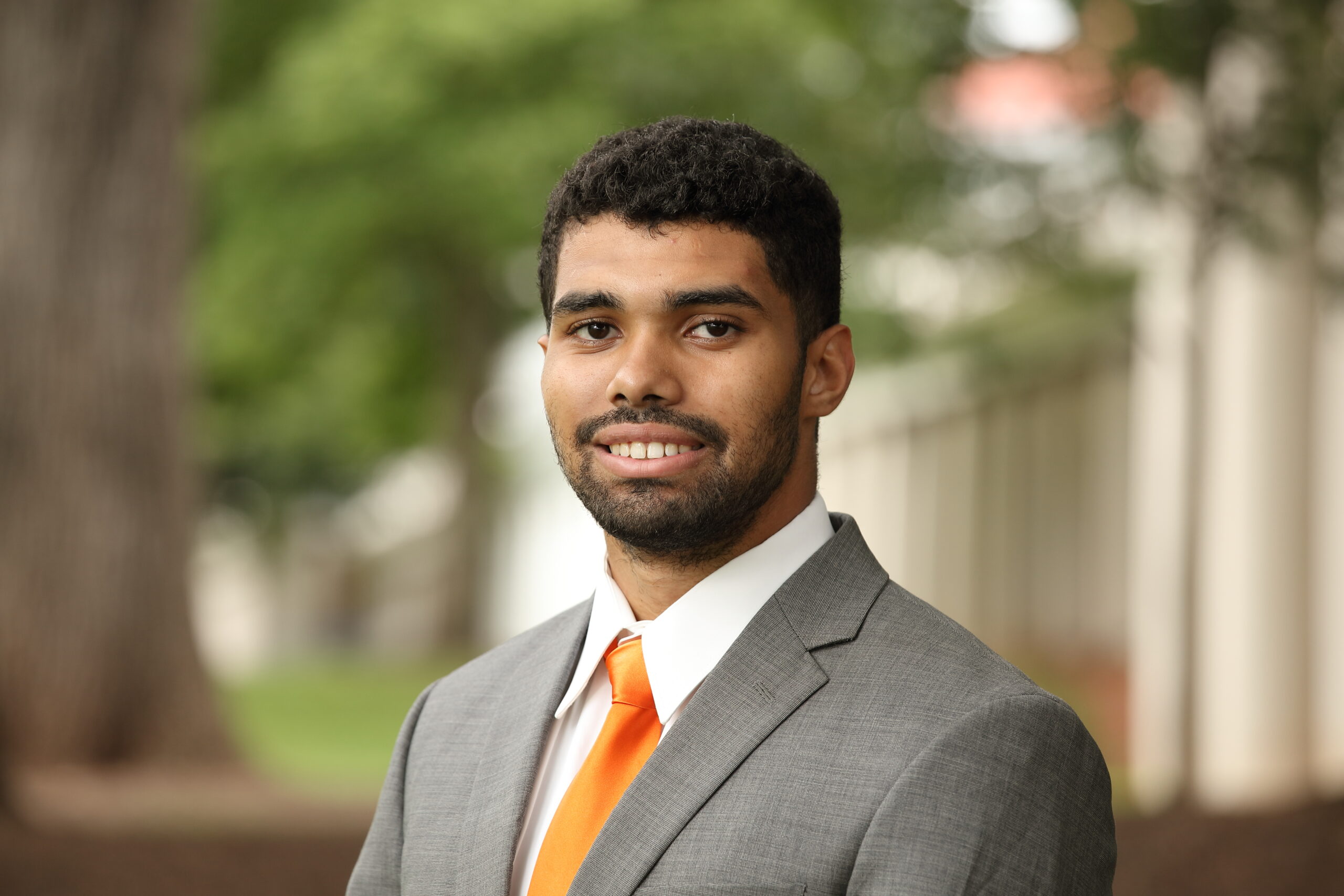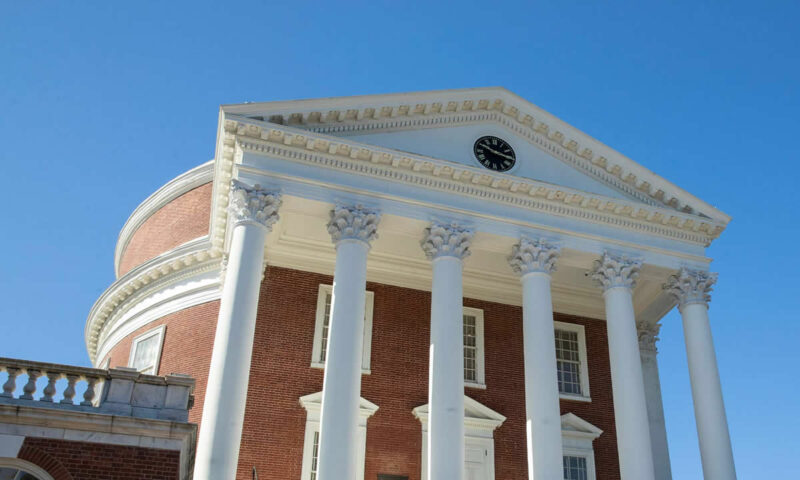One thing that has surprised me about the M.S. in Commerce Program is just how many different kinds of students it brings together. Although I once believed that everyone in the program shared my same reasons for coming, I quickly learned that many students have different motivations for choosing McIntire.
I enrolled in the program to enhance my business skill set, with the hopes of using these skills to be a more effective manager in the future. While this is certainly a major focus of the program, there is also a reason why this is an M.S. in Commerce rather than an M.S. in Management. Through the program’s offering of different tracks—Finance, Business Analytics, and Marketing & Management—it allows students to develop a business skill set tailored to these specific disciplines.
Although I am a Marketing & Management student, I checked in with two classmates in the Finance track to gain more insight into their experience over the past several months in the program: Louis Evans (undergrad: Davidson College, Economics) and Adam Rudolph-Math (undergrad: Rensselaer Polytechnic Institute, Industrial and Management Engineering).
Why did you choose the Finance track?
Louis: As an Economics major in undergrad, I developed an interest in capital markets and wanted to expand on this foundation. I was very interested in the Business Analytics track at first, but considered Finance to be what I would describe as “applied” analytics within the finance realm. I am quite mathematically inclined and prefer numbers over more qualitative issues, so the motivating factor was what I anticipated to be a curriculum that would teach us both finance and analytics, which it has.
Adam: In my undergrad studies and an internship experience at a renewable energy finance company, I was exposed to project finance and the analysis behind determining whether a project is viable or how to make it viable. As an engineer, we were taught that we had all the tools to change the world, but that the “suits” were often going to say no. Finance is about more than theoretically solving problems and hoping to get the go-ahead; it’s about structuring the economics of an undertaking so that all stakeholders have incentive to make the project succeed. Because of this, I believe leaders in finance can have an enormous, lasting impact on the world through the power of bringing people together.
How are the Finance-specific classes different from the general M.S. in Commerce courses?
Louis: From speaking with classmates outside of the Finance track, my understanding is that the material we cover is only really different in terms of the qualitative/quantitative aspect. We are taught in a similar fashion to other tracks, using real case examples for learning, but we are obviously just looking at different functional areas within finance, like mergers and acquisitions, that other tracks are not so concerned with.
Adam: The Finance track classes go deep into a few different vectors, particularly mergers and acquisitions and financial engineering with options. While at times the content does get extremely quantitative, my main takeaway from this program is that finance is more of an art than a science; predictions about future trends, attitude, interpersonal relationships and trust all play as big of a role as the raw data on any given case.
Can you talk about one of your professors you’ve enjoyed taking class with?
Louis: I have very much enjoyed Professor Felicia Marston’s class. She has an energy about her that goes against the typical persona given to people who work on Wall Street. Professor Marston has so much great experience in the industry, but still operates with humility and humor. She has made the process a fun and engaging one, while still being stern with learning objectives. She has also made herself extremely approachable and has helped me out a lot personally, in terms of professional development outside of the program.
Adam: I have loved the Professor Gayle Erwin and Felicia Marston duo. The two of them have partnered up on teaching the Valuation and Merger & Acquisition classes and have truly done an excellent job these past two semesters. The light, familial feel of their classes has given us a space to hone our corporate finance skills and build confidence in our ability to form our own opinions and interpretations of each case. It’s obvious after a couple minutes of class that they love teaching and truly care about supporting and getting to know their students through the learning process.
What is something about the Finance track that surprised you?
Louis: The biggest surprise for me has been some of these spring courses, specifically the IT & Finance course. This is an exciting overlap of management in IT and applied finance, whereas I thought our track work would be mostly financial analysis. The curriculum is contemporary and relevant to the real world, where tech is becoming increasingly relevant in all fields of work.
Adam: When I applied, I expected the Finance track to be very individual and cutthroat, much like an investment banking internship might be. My experience, however, has been the opposite of cutthroat; the program is so collaborative, and I find myself making new friends constantly as I work with my classmates and learn about everyone’s skills and perspectives on each case.
What kind of student or professional would you recommend the finance track to?
Louis: This course bridges the gap between academic coursework and the professional world. I would recommend the track to a student of any background who has an interest in operating within global financial markets.
Adam: I would recommend this program to any business student who can grasp quantitative methods, but is also willing to take a leap and let subjective ideas play a large role in their decision making. This can be scary for someone with a fully data-driven background, but can make all the difference in this program and in a finance career. In our projects and in our careers, we’re going to be taking different kinds of risk that require skepticism, optimism, trust, and creativity. All of these skills are what finance is all about—structuring the economics to enable movers and shakers to see their visions come to life.



